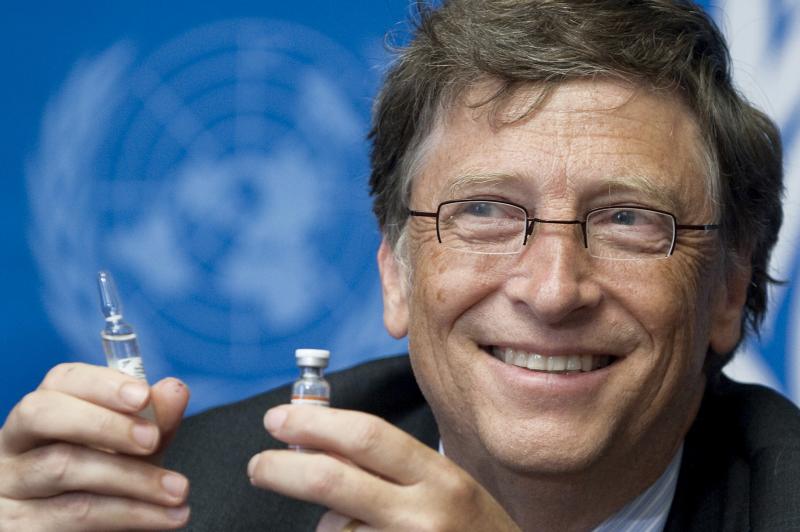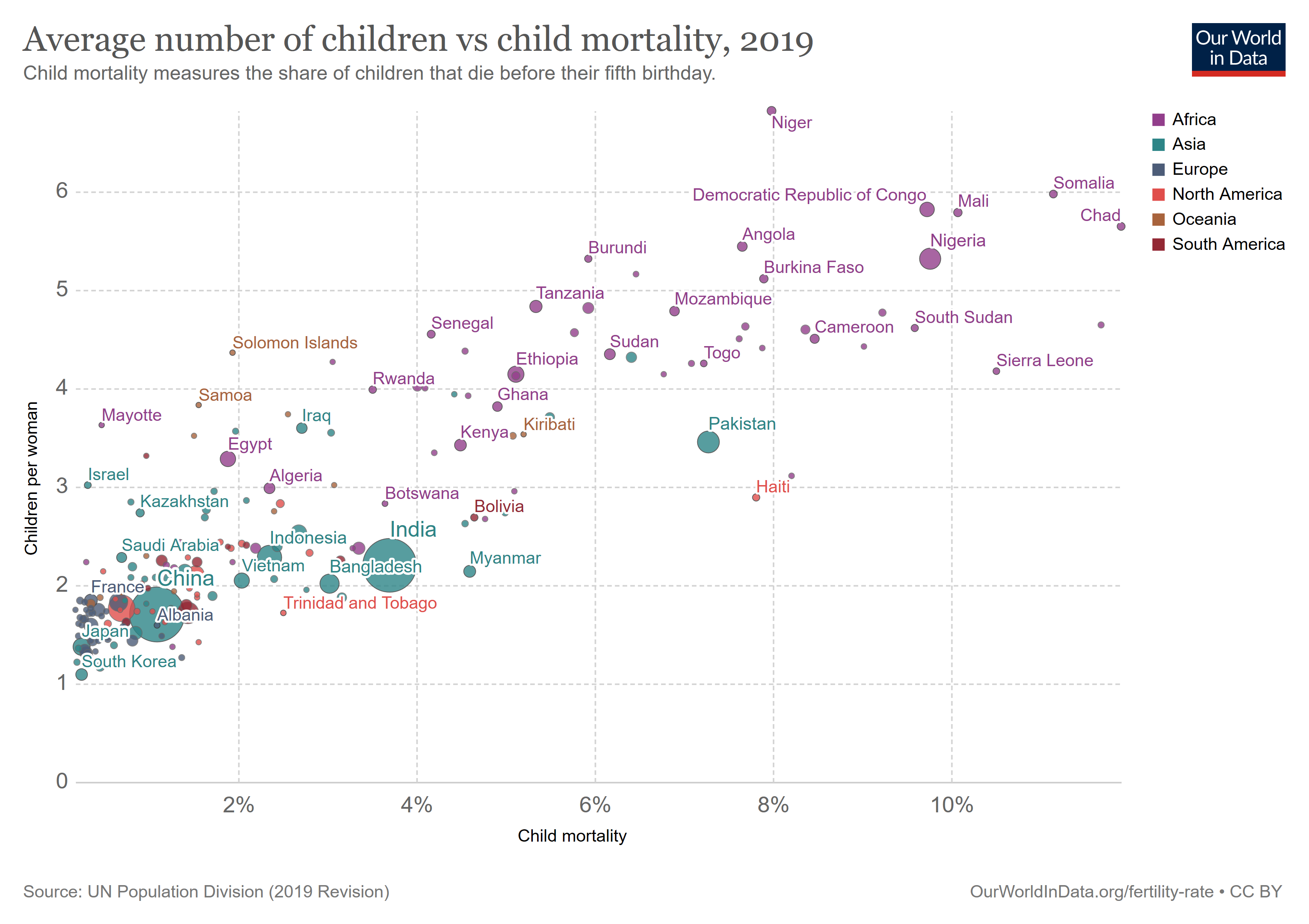
Conspiracy chaos: coronavirus, Bill Gates, the UN and population
Over recent years, a growing proportion of Population Matters’ website traffic has been driven by rather odd search terms including “Bill Gates depopulation”, “Agenda 2030 population control”, and “depopulation coronavirus vaccine”. In 2021, our digital manager at the time, Olivia Nater, wrote the blog below to separate the myth from the facts. We are republishing it today, as theories linking this week’s World Economic Forum in Davos with a global depopulation conspiracy are being circulated widely on social media. Again, the record needs to be set straight.

Bill Gates and population
What’s the connection between the tech billionaire and population concern? It appears a surprisingly large number of people believe Gates is on a mission to wipe out the human species through forced injection with fertility-blocking, mind-controlling or otherwise poisonous substances and ‘microchips’ disguised as COVID-19 vaccines. Some even believe the COVID-19 pandemic was deliberately engineered by Gates and other ‘global elites’, including the United Nations (more on that below), to depopulate the world.
This idea is often referred to as ‘The Great Reset’, which was originally just the name of an entirely non-sinister pandemic recovery initiative by the World Economic Forum (WEF), which meets annually in Davos. While theories about a depopulation conspiracy come in many different stripes, one or all of Gates, the UN and Davos usually feature in them.
A 2020 US election poll of 5,500 people found that a fifth of respondents shared this belief. Where did these conspiracy theories come from?
The Bill and Melinda Gates Foundation has long supported reproductive health and rights in developing countries, including family planning services. The Foundation has also pledged billions in support of vaccination programmes. Bill Gates has publicly spoken out about the benefits of slowing population growth through improved healthcare several times. For example, in a 2010 TED talk on ways to reduce climate emissions, the wealthy entrepreneur acknowledged the population factor and stated we could reduce this “if we do a really great job on new vaccines, healthcare, reproductive health services.”
Vaccines are supposed to save lives so you can see how their mention in the context of bringing down population could lead to widespread misinterpretation. In fact, the reality is positive: improving access to vaccines reduces child mortality, which research suggests leads to lower fertility rates (the average number of children per woman). The theory is that when people don’t have to worry so much about losing children to preventable diseases, they have fewer of them, as explained in the 2014 Gates annual letter.
What’s not to like? In addition, the evidence for the opposite relationship is even stronger: when people are able to access to reproductive healthcare, including contraception, existing children’s health and prospects dramatically improve.

The pandemic-driven conspiracy wave has also swept along some far-right anti-abortionists, who think “reproductive health services” is just a sneaky name for promoting abortions. Actually, improving access to reproductive health services leads to fewer abortions as when women are empowered to use contraception, their risk of unwanted pregnancy is hugely reduced. Those who don’t like abortions should therefore be donating to women’s rights and family planning organisations.
Like many high profile figures, Bill Gates attracts controversy and criticism – but the work done by the Bill and Melinda Gates Foundation has been immensely positive. Let’s not demonise or be cynical about beneficial investments on such a massive scale – we urgently need more international funding for sexual and reproductive health and rights and other vital health services, especially in light of recent harmful aid cuts.
The UN Sustainable Development Goals and population
Agenda 2030 is an ambitious United Nations initiative launched in 2015 to solve humanity’s biggest crises by 2030, from ending hunger, gender inequality and poverty to halting climate change and biodiversity loss. Its aims are laid out in the 17 Sustainable Development Goals (SDGs). An earlier version, Agenda 2021, launched at the 1992 Conference on Environment and Development in Rio, has also become a popular search term among conspiracy theorists who believe the agendas are covert plans to reduce the global population. This belief is truly puzzling, however.
Agenda 2021 states “The growth of world population and production combined with unsustainable consumption patterns places increasingly severe stress on the life-supporting capacities of our planet,” but does not propose any population action. Indeed, the SDGs completely omit the need to end population growth – so much so that Population Matters wrote a whole report last year about the links between population and the SDGs and the urgent need to push empowering solutions.
We also published a short animation video explaining how greater investment in the beneficial solutions already embedded within the SDGs, particularly empowering women and girls through improved access to family planning and education, is key to meeting all the other goals. We never expected this to make a big splash but it has already become our second most viewed video. Unfortunately, the comments on YouTube reveal that this popularity is driven by conspiracy theories rather than a sudden healthy interest in sustainable development.
There are, of course, many factors at play in this distortion of the intentions and consequences of the UN’s sustainable development agenda. The United Nations has long attracted hostility for its international perspective, and a false perception that it seeks to be a “world government”. Similarly, suspicion of experts, scientists and “elites” has deep roots, and benefitted from recent nourishment by populist politicians who see advantage in playing on the fears and misunderstandings of some parts of their electorates.
In reality, whatever its limitations and failings, the UN and its health and family planning programmes have overwhelmingly been a force for good in defending and empowering the world’s most vulnerable people, not least women and girls.
Even Prince William was recently dragged into the conspiracy quagmire following a viral Facebook post that accused him of being part of this supposed evil movement, just because he’s expressed concern about rapid population growth in the past.
What is actually being done about population?
The reality is that there just isn’t any concerted global effort to end and ultimately reverse human population growth, although at Population Matters we believe there should be – our already huge and still rapidly increasing numbers pose a serious threat to our future on this planet, as well as that of countless other species. We’re still headed towards 11 billion people by the end of the century, with many of the SDG progress indicators getting worse instead of better. Almost half of women in low- to mid-income countries have no say over their own bodies and lives, and an estimated 270 million women have an unmet need for modern family planning – this number is still increasing due to rapid population growth. Similarly, the number of women subjected to harmful practices like child marriage and female genital mutilation is also growing, while the number of people suffering from hunger and malnutrition has been increasing since 2014.
Ramping up positive action to empower women and communities to be able to exercise their reproductive rights is morally essential, would generate immediate benefits for everyone, and put us on a path towards a happier, healthier future.
With so many real crises in urgent need of attention, it is deeply worrying that harmful conspiracy theories have become so popular. If you encounter people who have been fed misinformation, please reach out to them – here’s some good guidance on how to do that and please also see our facts, solutions and mythbusting pages for useful information on the population issue and common misconceptions. The internet is a dangerous place – stay safe out there!



